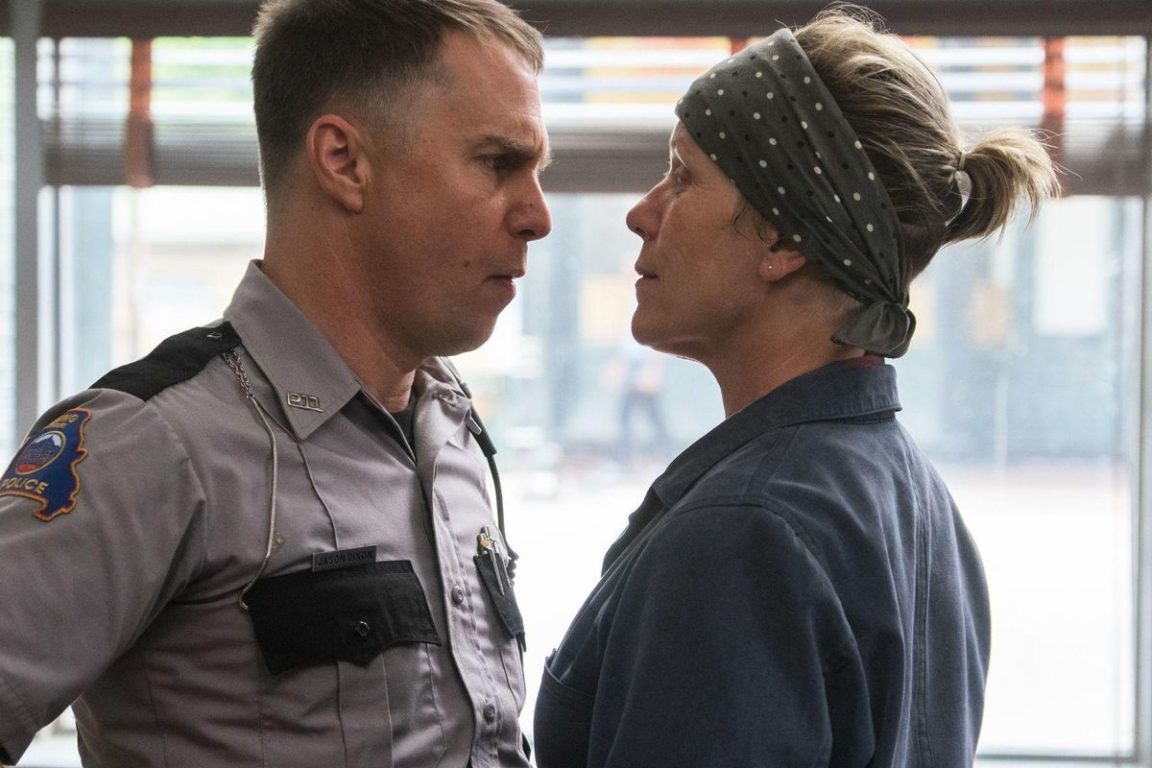Overview
Recently, Three Billboards Outside Ebbing, Missouri (henceforth: Three Billboards) was released digitally. Though I was not close to a theater showing this film when it was in theaters, I had seen many trailers for it and was immediately hooked by its dark humor (something that I later came to find was darker than anticipated). I hunkered down at my desk and played Three Billboards on my laptop only to find myself yearning hopelessly by the end of the film for more. Three Billboards follows Mildred Hayes (2-time Academy Award Winner Frances McDormand), a distraught mother after the rape and murder of her daughter Angela. She erects (spoiler alert) three billboards near her property that read “Raped while dying,” “And still no arrests?” “How come Chief Willhouby?” (Chief William “Bill” Willhouby is played by 3-time Academy Award Nominated Woody Harrelson). Aside from McDormand and Harrelson is also Academy Award winner Sam Rockwell, who plays Jason Dixon, a brute-like cop who is deeper than a force not to be reckoned with, and Peter Dinklage, who appears to only be in this movie as a punchline.
Analysis
When Three Billboards begins, we are treated to somber opening credits showing three dilapidated billboards. Mildred drives by them on her way home and stops for moment as she gets an idea after noting the company these billboards belong to. Immediately after this she appears in the office of the company who owns the billboards, and we immediately get a taste of her personality. “What can’t ya put on a billboard? I’m assuming you can’t say f*ck, piss, or c*nt, and nothing defamatory, right?” Right after this exchange, she erects the said billboards, and we know she means business. Jason Dixon drives by at night and has an interesting exchange with an African American worker (we learn through this that Dixon is a racist cop who picks on the African Americans in Ebbing). After this he calls on Chief Willhouby, who is eating his Easter dinner. He answers with swearing and taking the Lord’s name in vain in front of his children followed by a pleasant “sorry kids.” Within the first ten minutes we know exactly who these people are. As the film progresses—and events transpire—their personality traits are heightened; Mildred at one points says that a war is starting and it actually feels like a war has begun between the police departments and Mildred.
The character of Mildred is one of the most interesting portrayals of a woman that a man has ever written (writer/director Martin McDonagh). The strength that Mildred exudes in every scene hides the pain of losing hope that one day, maybe, her daughter’s murderer will be found. Mildred is the fighter that every mom is on the inside. When the face drops though, the pain overflows and seeps into the room. Out of all of the chaos and craziness going on in the film, there is a brief moment where we learn about Mildred’s thoughts on reincarnation when she encounters a (poorly CGIed) deer near one of the billboards. Her pain—the pain of scared mother—hurts the audience When she’s not showing an inner strength, she’s showing actual strength when she’s wreaking havoc in the town of Ebbing in order to get the attention of the police.

Chief Willhouby turns out to be the voice of reason amidst this entire debacle. When the lower police officers seek retribution, Willhouby stands in their way; when Mildred goes off the rails, he calmly talks with her about the issue at hand. Though Harrelson did not get an award for this role, he most certainly stands out compared to the rest of the cast. He stands out most importantly due to his family, and it seems to be the catalyst for his calm demeanor when he talks with Mildred. He may not like Mildred’s take on the issue (spoiler territory to talk about that), but he understands as a parent the pain that Mildred is going through. Even as they sit on a swing set outside of Mildred’s house, debating the appropriate nature of the three billboards, there is still a subtle empathy towards Mildred.
Finally, there’s the most surprising character out of all of them: Jason Dixon. Jason is harboring some of his own demons (i.e. harassing black people and living with this mother). Dixon comes off as a lazy cop who reacts emotionally while on the job (he throws someone out of a window after a dispute about the three billboards). After an accident occurs, and Dixon is left disfigured, he changes his ways drastically. Though it seems fast at first, it also feels very natural and real.
There are not many drawbacks to this film besides a really bad looking CGI deer and the fact that Peter Dinklage feels like he is being used as a prop rather than a developed character. Carter Burwell scores this fascinating tale about a mother’s grief and her fight to find the truth.
Score: 9/10




